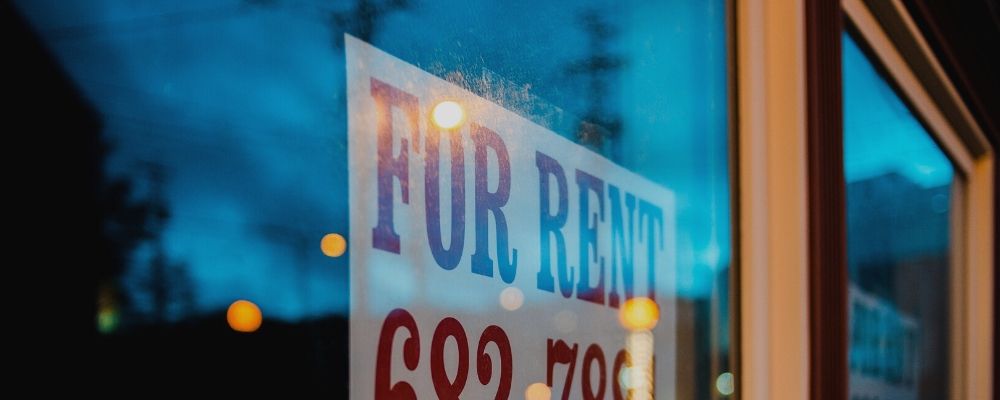All 8 Australian states and territories have now implemented the 14 principles stipulated by the federal Commercial Tenancies Code into their COVID-19 tenancy law.
COVID-19 Tenancy Law
COVID-19 tenancy law includes a significant portion of debt forgiveness. The only state-ordered debt forgiveness in the entire COVID-19 landscape when you put government charges aside.
So the big question is now whether this new legislation gives you clear black and white rules that tell you what the rent should be?
In search of an answer we asked Ben Sewell of Sewell & Kettle Lawyers in Sydney. Here is what we learned but please listen in as Ben explains all this much better than we ever could.
To listen while you drive, walk or work, just access the episode through a free podcast app on your mobile phone.
State Law
The relationship between landlords and tenants is governed by state law, not federal law. So it is the states and territories who have the final call on what happens to commercial rents during lockdowns.
Federal Commercial Tenancies Code
Rent is a major expense for small to medium business so rent needed to be addressed as part of the federal rescue packages. So the Federal Government issued the Commercial Tenancies Code on 7 April 2020 with 14 stated principles and directed states and territories to amend their laws accordingly.
Implemented By All States and Territories
The Commercial Tenancies Code stipulates 14 principles, which all states and territories have now implemented. So the 14 principles stand, even though each state and territory added some details to their state laws.
As already stated in the Code, tenants and landlords can waive any of their rights under the Code and agree something different.
No Black and White Rules
The problem is that the Code and now the respective state legislation is full of fuzzy terms like ‘circumstances’, ‘appropriate’, ‘reasonable’, ‘fair’ and so on. There are no clear black and white rules that let you work things out with a calculator.
So it comes down to negotiations between tenants and landlords. Sitting down and finding a solution that works for both. Negotiation and documentation or – if you can’t agree – the Civil and Administrative Tribunal in your state or territory, so QCAT, NCAT, VCAT and so on.
Here is a quote from Ben Sewell,
“The Tribunals always side with the weaker one – always. And that is usually the tenant, since the landlord has the land.”
Principles
The Code and now the resulting state and territory laws are based on 14 principles, which we list below to rejig your memory. For more details please listen to update 9, where we go through these in much more detail.
Principle # 1
You as the tenant are safe from eviction for non-payment of rent during the COVID-19 crisis.
Principle # 2
Apart from paying the lease, you must still follow the other terms of the lease agreement.
Principle # 3
To whatever extent your turnover dropped, your rent should drop to the same extent.
Principle # 4
At least 50% of your rent reduction should be waived. The rest should be deferred until the end of the crisis.
Principle # 5
Deferred amounts should be amortised over the remaining lease term or 24 months after the end of the crisis, whichever is greater.
Principle # 6
Any reduction in statutory charges – land tax, council rates etc – your landlord receives should be passed on to you as the tenant in an appropriate proportion.
Principle # 7
If a financial institution provides a benefit to your landlord (for example deferral of loan payments), they should share the benefit with you as the tenant.
Principle # 8
Your landlord should not charge you for expenses and outgoings that don’t make sense during lockdown, for example cleaning. Of course the landlord can cancel those services so they don’t pay for it either.
Principle # 9
Whatever needs to get paid, should be paid over an extended period of time after the pandemic ends or the existing lease expires.
Principle # 10
Your landlord should not hit you with any fees, interest, charges, or punitive interest to any waiver or deferral of your rent.
Principle # 11
Whatever security you gave your landlord – bond, bank or personal guarantee – they must not draw on it to get their rent.
Principle # 12
You as the tenant should be allowed to extend the lease to allow you to recover after the pandemic ends.
Principle # 13
Any scheduled rent increases should be put on hold until you are through a reasonable recovery period.
Principle # 14
If you want to reduce your opening hours or cease to trade during the pandemic, your landlord must not try to stop you or penalise you.
_____
So these are the 14 principles that all states and territories have now implemented into their state laws. But just like the Commercial Tenancies Code, the state legislations include a lot of fuzzy terms, so it all comes down to negotiation or the tribunal in the end.
MORE
Disclaimer: Tax Talks does not provide financial or tax advice. All information on Tax Talks is of a general nature only and might no longer be up to date or correct. You should seek professional accredited tax and financial advice when considering whether the information is suitable to your or your client’s circumstances.
